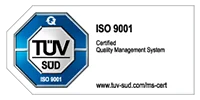Top 10 Innovative Frontend Technologies | Incepteo Blogs
- Technology Top 10 technologies to develop web frontend for your application




Top 10 technologies to develop web frontend for your application
Top 10 technologies to develop web frontend for your application
Choosing the proper technological to enhance the frontend of your internet software is integral to its success. In this blog post, we’ll take a look at the top 10 technologies to develop web frontend to improve net frontend for your application, including what each technology is, why you might choose it, and the pros and cons of each.
1.React
What: React is a famous open-source JavaScript library for constructing consumer interfaces.
Why: React is acknowledged for its flexibility and scalability, making it a famous preference for constructing complex, large-scale net applications. It additionally has a giant developer neighborhood and a vary of assisting equipment and libraries.
Pros:
- Flexibility and scalability
- Large developer community
- Supporting equipment and libraries
Cons:
- Steep studying curve for beginners
- Requires know-how of JavaScript
2.Vue.js
What: Vue.js is a progressive, open-source JavaScript framework for constructing person interfaces.
Why: Vue.js is recognised for its simplicity and ease of use, making it a extremely good desire for constructing small to medium-sized internet applications. It additionally has a small footprint and can be effortlessly built-in with different libraries and tools.
Pros:
- Simplicity and ease of use
- Small footprint
- Easily built-in with different libraries and tools
Cons:
- Limited scalability for large applications
- Less set up than different options
3.Angular
What: Angular is a popular, open-source TypeScript-based net software framework.
Why: Angular is recognised for its robustness and scalability, making it a exceptional desire for constructing large-scale company applications. It additionally has a vary of built-in features, such as an superior templating machine and dependency injection.
Pros:
- Robustness and scalability
- Built-in features, such as an superior templating machine and dependency injection
- Large developer community
Cons:
- Steep gaining knowledge of curve for beginners
- Heavier and slower than different options
4.jQuery
What: jQuery is a popular, light-weight JavaScript library for simplifying HTML file traversal and manipulation.
Why: jQuery is recognised for its ease of use and versatility, making it a famous preference for small to medium-sized internet applications. It additionally has a massive developer neighborhood and a vary of assisting plugins and extensions.
Pros:
- Ease of use and versatility
- Large developer community
- Supporting plugins and extensions
Cons:
- Limited scalability for large applications
- No longer the most cutting-edge option
5.Ember.js
What: Ember.js is a famous open-source JavaScript framework for constructing scalable internet applications.
Why: Ember.js is recognized for its focal point on conference over configuration, making it convenient to construct large-scale purposes with consistent, maintainable code. It additionally consists of a vary of built-in features, such as an superior router and facts layer.
Pros:
- Focus on conference over configuration
- Built-in features, such as an superior router and records layer
- Large developer community
Cons:
- Steep gaining knowledge of curve for beginners
- Can be heavy for smaller applications
6.Backbone.js
What: Backbone.js is a lightweight, open-source JavaScript library for constructing net applications.
Why: Backbone.js is recognised for its simplicity and modularity, making it a outstanding desire for constructing small to medium-sized applications. It additionally has a small footprint and can be without problems built-in with different libraries and tools.
Pros:
- Simplicity and modularity
- Small footprint
- Easily built-in with different libraries and tools
Cons:
- Limited scalability for large applications
- Less mounted than different options
7.Svelte
What: Svelte is a present day JavaScript framework for constructing consumer interfaces.
Why: Svelte is acknowledged for its overall performance and ease of use, thanks to its continue
unique method to constructing consumer interfaces. It compiles the code at construct time, ensuing in smaller, faster-loading applications. It additionally has a small API and can be effortlessly built-in with different libraries and tools.
Pros:
- Performance and ease of use
- Small API
- Easily built-in with different libraries and tools
Cons:
- Less mounted than different options
- Limited scalability for large applications
8.Aurelia
What: Aurelia is a modern, open-source JavaScript framework for constructing internet applications.
Why: Aurelia is recognised for its simplicity and flexibility, making it a gorgeous preference for constructing small to medium-sized internet applications. It additionally has a robust focal point on developer experience, with a clean, intuitive API and a vary of helping equipment and libraries.
Pros:
- Simplicity and flexibility
- Focus on developer experience
- Supporting equipment and libraries
Cons:
- Limited scalability for large applications
- Less hooked up than different options
9.Preact
What: Preact is a lightweight, fast, and small-sized JavaScript library for building person interfaces.
Why: Preact is acknowledged for its small dimension and excessive performance, making it a splendid preference for constructing small to medium-sized purposes that want to load quickly. It additionally has a comparable API to React, making it effortless to examine and use for builders who are already acquainted with React.
Pros:
- Small dimension and excessive performance
- Similar API to React
- Easily built-in with different libraries and tools
Cons:
- Limited scalability for large applications
- Less mounted than different options
10.Polymer
What: Polymer is a modern, open-source JavaScript library for constructing net applications.
Why: Polymer is recognized for its flexibility and internet component-based architecture, making it a top notch preference for constructing custom, reusable UI components. It additionally has a vary of built-in features, such as a records binding device and help for server-side rendering.
Pros:
- Flexibility and internet component-based architecture
- Built-in features, such as a facts binding device and help for server-side rendering
- Large developer community
Cons:
- Steep getting to know curve for beginners
- Limited scalability for large applications
In conclusion, choosing the right technology to develop the frontend of your web application is critical to its success. React, Vue.js, and Angular are the top three most popular options, followed by jQuery, Ember.js, and Backbone.js. Svelte, Aurelia, Preact, and Polymer are also worth considering, depending on the specific needs of your project.
As a software development partner, Incepteo can help you choose the best technology for your project, based on our discovery-first approach, UX design expertise, and experienced development team with a combination of local and offshore talent.
Share this:
Recent Posts
- Strategic Engagement Models with Technology Service Companies: The Incepteo Approach
- The CTO Advisory: Why Your Startup Needs Expert Technology Guidance
- AI Development Predictions 2024: Anticipating the Next Phase of Innovation
- Revolutionizing Mobile App Development 9 Innovative Technologies Leading the Change
- Ensuring Mobile App Security: 7 Vital Measures Every Developer Should Implement
By Sector

How Can Incepteo Help You?


Quick Links
AI SERVICES
2024 © All rights reserved by Incepteo